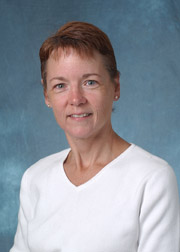
Contact: Elizabeth Skewes, 303-735-1096, elizabeth.skewes@colorado.edu; Deborah Mendez-Wilson, 303-492-3117; both with the University of Colorado at Boulder
BOULDER, April 27 /Standard Newswire/ -- A new book by a University of Colorado at Boulder professor examines how the national media cover modern presidential elections amid increasing control over messages that get to the electorate, deep political divisions, public backlash over campaign mudslinging and the emergence of blogs and other "new media."
Photo: Elizabeth Skewes
Assistant Professor Elizabeth Skewes, who teaches news writing, research methods, political communication and media ethics at the CU-Boulder School of Journalism and Mass Communication, said she wanted to take a big-picture, academic look at the forces that shape the national media's coverage of presidential elections and whether those efforts are serving the public interest.
For her book, "Message Control: How News is Made on the Presidential Campaign Trail," Skewes interviewed 22 of the nation's top political reporters who covered the 2004 presidential election, along with a handful of campaign managers. Through a scholarly lens, she examines presidential elections and the press corps that shadows candidates as they attempt to position themselves as party leaders on the national stage.
Among Skewes' conclusions: No one - not journalists, campaign managers or even the candidates themselves - seems to be satisfied with the political campaign process, yet the results always seem to be the same.
"If nobody likes it and it doesn't serve the public - why does it happen?" Skewes asked. "We get frustrated with the trivialization of issues and the mudslinging, yet we keep repeating the pattern. I hope we can have a kind of discussion about this as a country and improve the coverage."
Skewes' book, recently published by Rowman & Littlefield, comes 34 years after the publication of Timothy Crouse's seminal "The Boys on the Bus," a behind-the-scenes account of reporters who covered the 1972 presidential campaign. Crouse's best-selling book, based on a series of "new journalism" stories that first appeared in Rolling Stone magazine, turned some of the country's top political reporters into urban legends and gave rise to a new era of press self-examination and public criticism of "pack journalism."
Skewes, who spent part of her childhood just outside
"Media coverage is how the public gets to know candidates, so I think it really matters," she said.
Too often, she said, the public sees only caricatures of presidential candidates because the national press corps is denied access or receives tightly controlled, self-serving messages. In the end, candidates could do a better job of making themselves available and revealing their authentic selves to the public, and reporters could strive to cover issues that don't always lead to sensational "gotcha stories."
"It's about this struggle. Campaigns want to control the message that gets out, they want to frame it, but reporters don't want to be controlled that way," Skewes said.
"That's partly the job of the journalist - to bring that skeptical eye. It's not the job of a reporter to follow lockstep what campaigns are saying," she added. "But if someone wants to be the president of the
For more information about Skewes' book, visit http://www.rowmanlittlefield.com/Catalog/Singlebook.shtml?command=Search&db=^DB/CATALOG.db&eqSKUdata=0742554619.
To learn more about the




 Sign Up to Receive Press Releases:
Sign Up to Receive Press Releases: